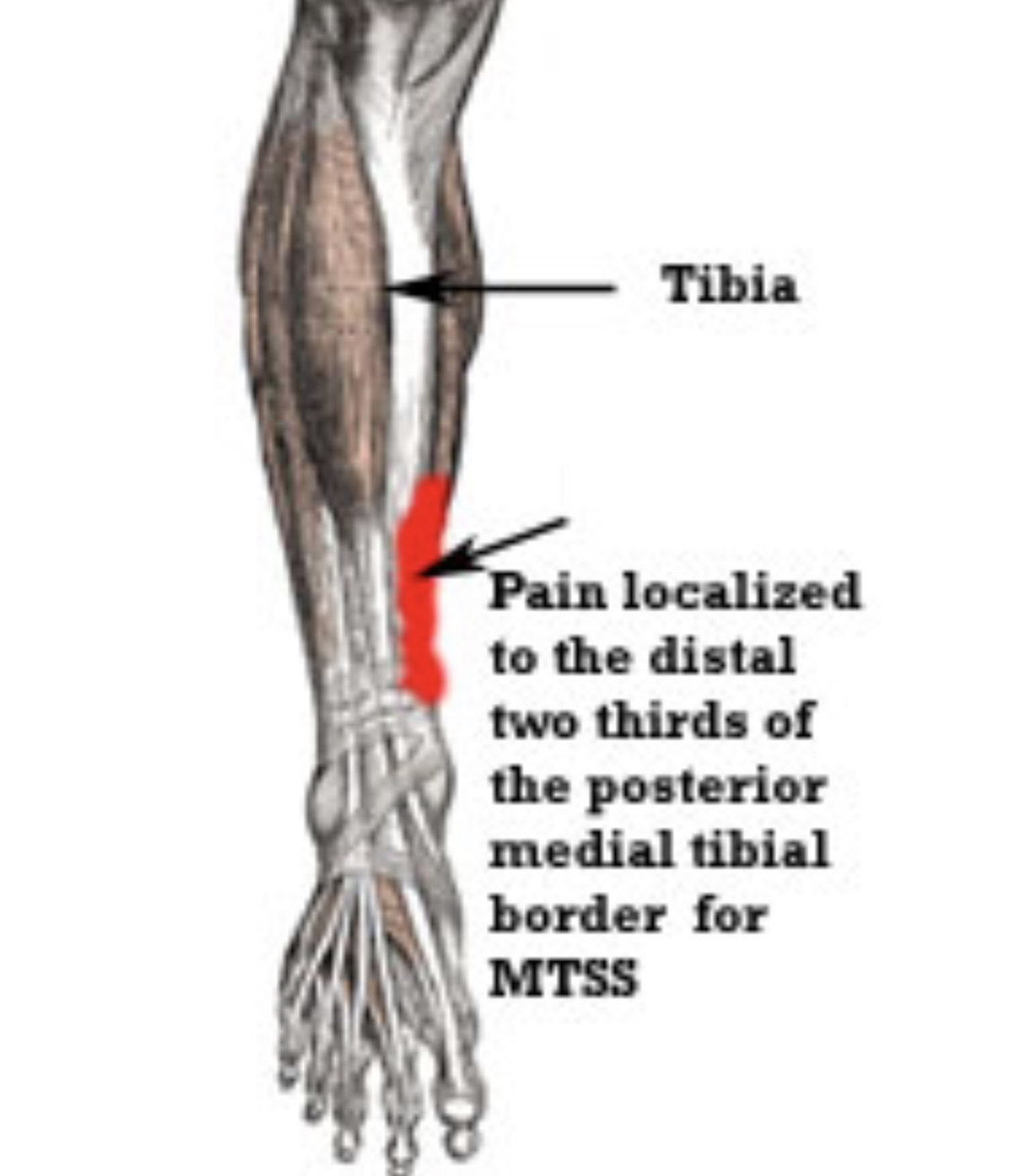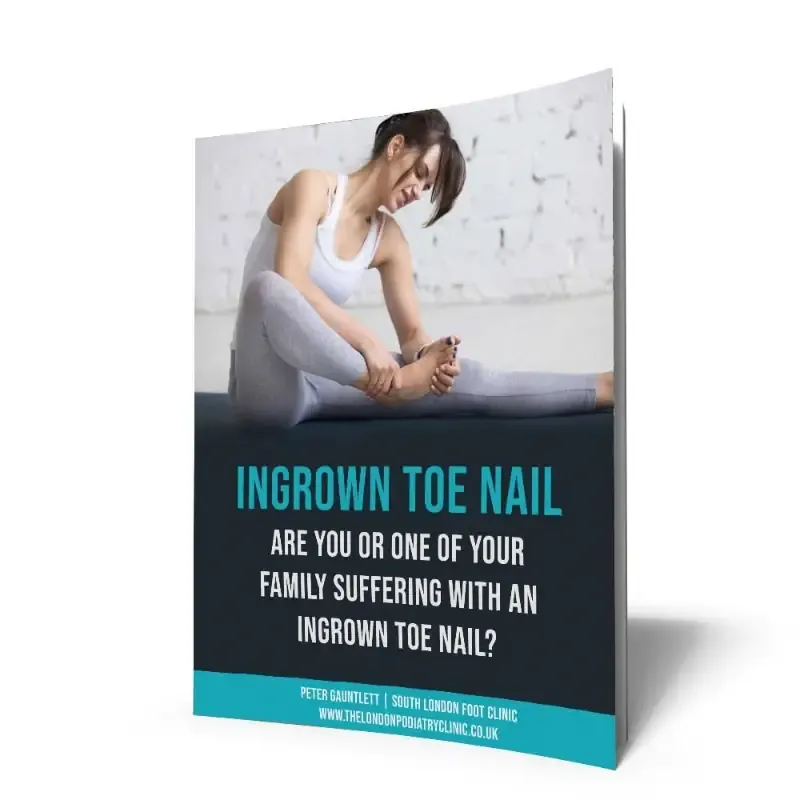What Causes Leg Pain While Running?
Feb 09, 2022
Leg Pain During or After a Run
Running has become more and more popular in the past few decades and with this trend so have running injuries.
People who have just taken up running have the highest incidence of injury. It is only after being a regular runner for three years that you become less likely to become injured!

Leg pain towards the lower, inside of the leg is most commonly shin splints, or the more modern term is medial tibial stress syndrome. The pain is localised 2/3 distal on the bone - in the leg. See the description below. It is one of the most common running injuries seen in recreational runners.

The pain can come on during a run, immediately after or even the following day.
The pain is a dull ache, and sometimes a sharp pain. There is pain and tenderness to the leg bone at the site seen above. Once established it can stop runners from continuing with their training.
What is Medial Tibial Stress Syndrome MTSS?
There has been a debate for quite some time on what is the cause of the pain. Some researchers suggested the soft tissue attaching to the bone was causing the pain, others the tendons and muscles of the leg.
The real cause is an overuse injury of the bone. It may start with a bruise of the internal structures of the bone and progress to microfractures of the bone itself. In some legs, you can feel a thickening or 'bump' along the shin. If continuing to run without intervention on a painful leg with MTSS the injury can progress to a stress fracture of the bone.
There are other causes of lower leg pain however MTSS is the most common.
Why Do We Get MTSS?
Bone is a living tissue and gets injured just like other tissue in the body. There is a natural process of build up and break down of bone.
Your activity levels as well as stress levels, nutrition, type and intensity of training as well and your body's biomechanics will all have an influence on this.
There are individual differences in anatomy that can predispose someone to MTSS, however 'doing too much too soon' is the most common factor that you have an influence over.
What should you do if you have MTSS?
It's strongly advised that you see a professional who can diagnose and assess your current leg pain. Discontinue running if the pain is above VAS 4 out of 10.
A running and/or walking assessment (Gait Analysis) will help to decide how you should progress with your rehabilitation.
CLICK THE NUMBER TO CALL US:
CLICK HERE TO BOOK AN APPOINTMENT WITH ONE OF OUR SOUTH LONDON-BASED
Will the Pain Get Better?
With proper rehabilitation, you will be pain-free. However, continuing to run with pain will prolong the rehabilitation period.


